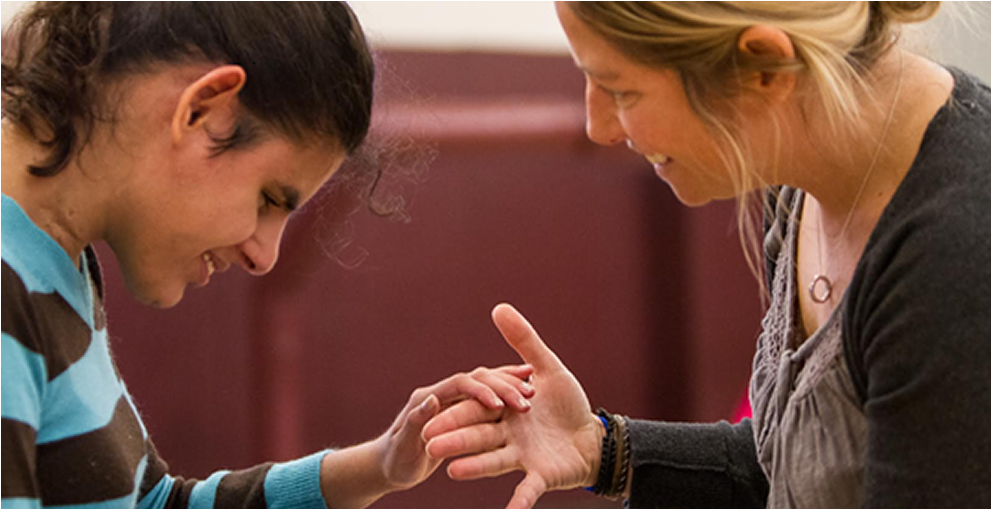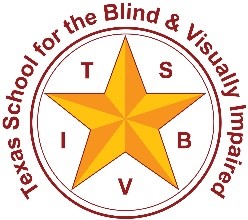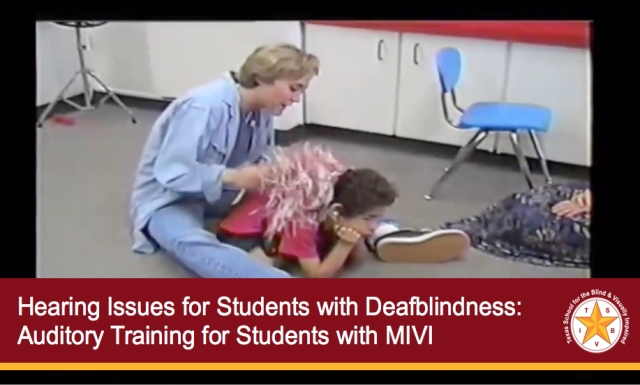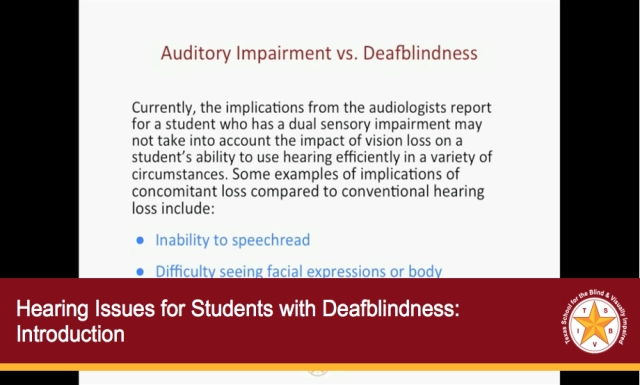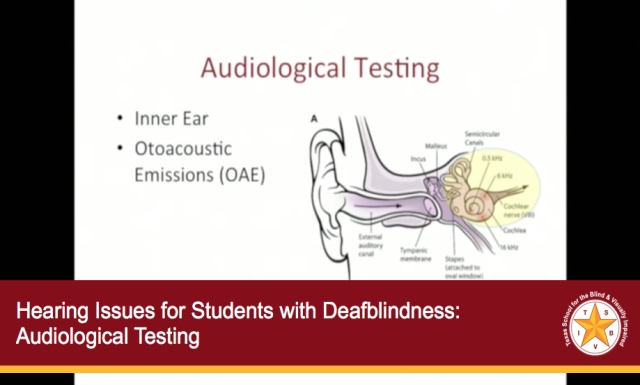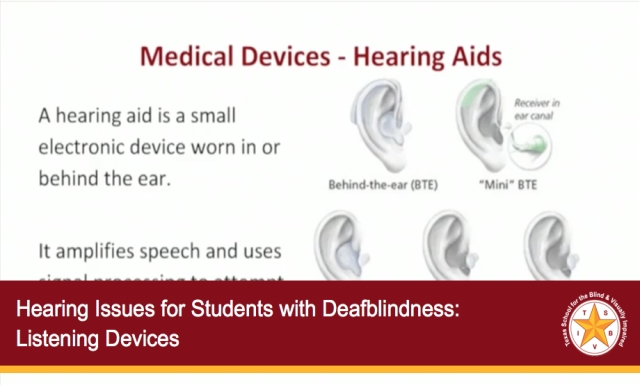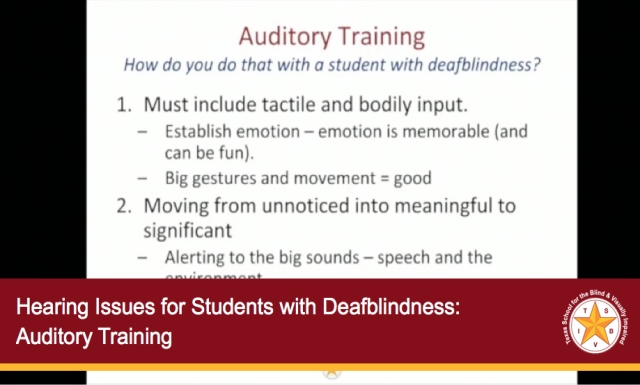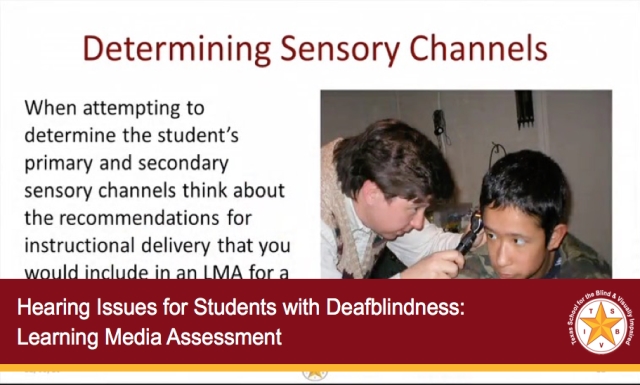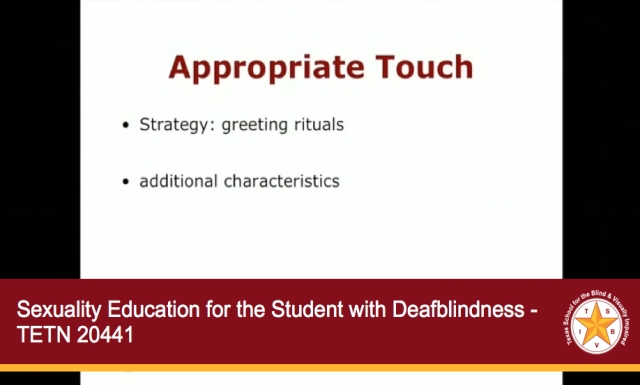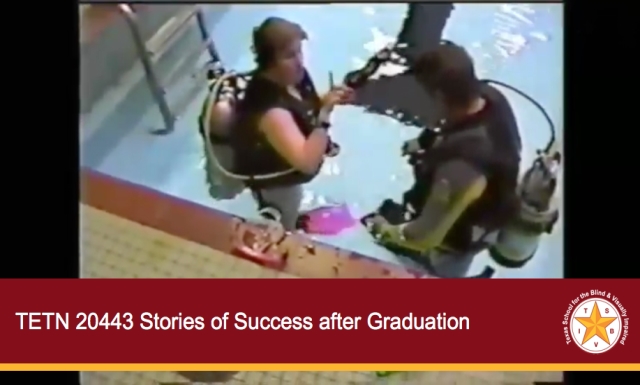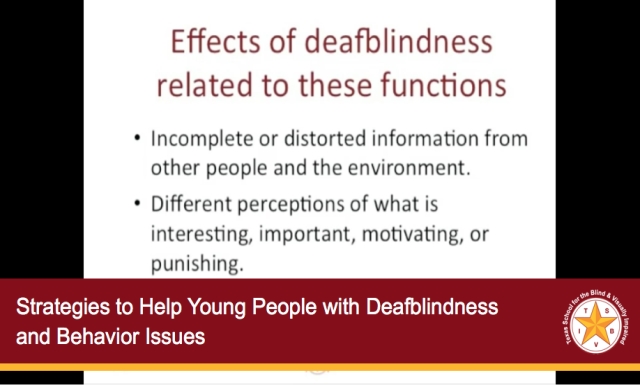Webinars

Texas Deafblind Project has created numerous webinars and video-recordings of presentations. These are available for viewing on demand. Some of these materials are also approved for continuing education units (CEU) for ACVREP and the Texas State Board of Education Certification. Please visit the TSBVI website and complete a delayed viewing request form to receive credit. Not all of the materials listed below provide CEUs.
Webinars
Essential Tools of the Trade for Teachers of Students who are Deafblind – 1/30/23
Downloads:
TranscriptTSBVI Coffee Hour: Exploring the Sense of Touch 8-23-21
Downloads: Handout – PDF) and Transcript
TSBVI Coffee Hour: Guidance for Planning Behavior Intervention for Children and Young Adults who are Deafblind or Visual and Multiple Impairments – 11-29-21
Open captioned, ASL interpretation. Join us for an overview of TSBVI’s new behavior guidance document. We will explore ways to foster safety, success, independence, connectedness by using proactive and responsive strategies. We will also address how meeting these needs can impact behavior and lay the foundation for all development and learning.
